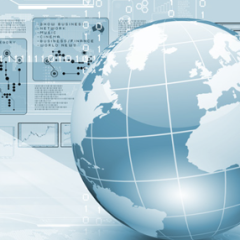What Axel Springer’s Big Business Insider Buy Means
Axel Springer is in business. The massive and growing Berlin-based media company won the business-news franchise it had sought, as the sale of six-year-old Business Insider to Springer was announced this morning. The announcement came in the early morning hours, Eastern time, an unusual hour for such things. Then, again, not too many global media deals make their way out of the Central European time zone.
As we reported last week (“Axel Springer’s Move to Buy Business Insider”), CEO Mathias Döpfner had given urgency to the BI buy, after being outbid at the last moment for the Financial Times in July by Nikkei. Döpfner has made a priority of owning a global business-news franchise, first in the bidding for Forbes in mid-2014.
First published at Politico Media
Follow Newsonomics on Twitter @kdoctor
Springer won near-total control of Business Insider, in effect paying about $442 million for the company. Both investor Jeff Bezos and the BI’s principals, CEO Henry Blodget and COO Julie Hansen, maintain their stakes, as well as gaining stock options. While the announced price of $343 million is technically accurate, it represents some accounting finesse. Those tracking the wave of newer news media investments and valuations are now best off knowing that the market has valued Business Insider at something less than half a billion dollars. That puts Business Insider in rarefied territory. It joins Vice, Vox Media and Buzzfeed, each valued at more than a billion dollars, in a Big Four of newer news media crossovers, certified by old media investment.
Springer’s interest in BI had been both early and recent. In January, it made a $25 million solo investment in the company, which has spurred its global growth
For Business Insider, the sale represents a coming of age. Both Blodget and Hansen — its management will stay in place under Springer ownership — have built the business for hypergrowth, out of the Great Recession.
Their timing is now rewarded, but their challenges are numerous. With revenue approaching $50 million annually, BI today is an ad-reliant company. Ad revenue drives 75% of its total. While the business niche is an above-average one, hyper-competition and even the recent disruption of ad blockers, spell continuous need for adaptation. Springer’s investment is thumbs-up for BI’s rapid international growth; the company will have nine international sites by year’s end, but could have “dozens” within a couple of years. Expect Springer to move forward with that global land-grab strategy, and to be patient in wringing profit out in later years.
For Axel Springer, the acquisition fits the Springer strategy that has fast evolved since it reckoned the non-stop slide of its print base, and moved to transform the company (“What Are They Thinking? The eight principles for transforming Axel Springer”). We can see in the purchase almost all those strategic principles, which I outlined in April, but can call out two of them today.
While Business Insider launches its first non-English language sites in Europe this fall, in Germany and in Poland in those native languages, Springer has recognized that English-language media rule the digital roost. With one billion English speakers on the globe, English-language media lead the way.
Second, Springer has learned what Google, Facebook and the New York Times have learned: be first or second in your field. Digital business doesn’t reward also-rans, and that often means third-place players and lower. Business Insider leapfrogged both Wall Street Journal and Forbes in the past year, to claiming the second-largest unique visitor audience among business readers in the U.S.
As the Springer wins Business Insider, its very identity as a company is still being shaped in clay. Since its 1946 founding, it has been an operating company, a strong-voiced publisher for decades. More recently, it traded its regional newspaper properties for €920 million and then doubled down on its investments, which earlier on had included jobs and property sites. Springer invested in Business Insider and in a 50% stake in POLITICO Europe (which is co-owned by POLITICO, owner of POLITICO Media). In those investments and others — digital news sites Mic, Ozy, Retale and virtual reality start-up Jaunt, in which it participated in a $65 million round of funding just last week — it’s become as much an investor, and even a holding company, as it maintains its more familiar role as an operator.
As 2016 eases in, the media world will watch what kinds of connections — in business generally, in advertising and in audience multiplication — it can make of its now-diverse holdings on both sides of the Atlantic. (As one example, Ozy runs translated stories from Die Welt, Springer’s national daily.)
Its portfolio can seem gangly from the outside, as the company makes both financial bets and learning bets — getting to see the innards of various start-up digital businesses — and the company’s market position is still in formation.
With $3 billion in revenue and a market capitalization of $5 billion, the BI acquisition is a significant one. Yet Axel Springer sees it as just one more — big — milestone in its reshaping strategy. CEO Döpfner values the “financial flexibility necessary to react to dynamic news markets,” as one keen observer puts in. Further, its “partnership” financial structure (Springer was re-engineered legally as a “European company” in 2013) is fundamental to its strategy. With majority voting rights held privately, though profits are more evenly shared, the company has more flexibility to move quickly.
While Schibsted, a fellow Europe-based, up-from-newspaper digital business out-performer, has worked its models around the globe, Axel Springer clearly intends to be considered a company getting to be recognized as U.S. one in part. That hearkens back to namesake Axel Springer’s founding affinity for the U.S. (expressed still in a fairly remarkable set of corporate principles), but takes it in a new direction. Overall, it offers one more lesson in the evolving meaning of globalism in the older-line, and newly drawn, media business.




